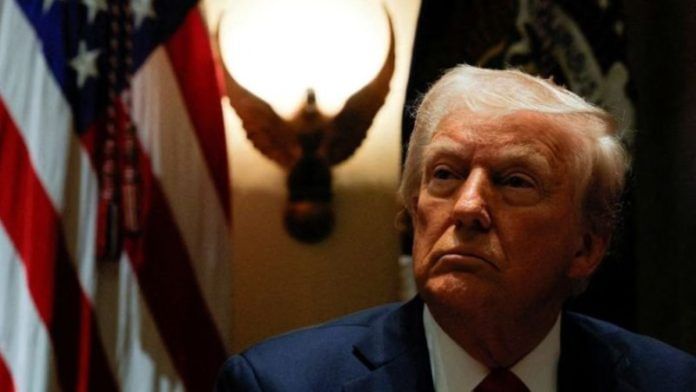New Delhi: India has sent proposals to the US with regards to the trade deal between the two countries. New Delhi is waiting on a response from the White House. The prevailing perception is that additional rounds of negotiations are unnecessary.
On Monday, US President Donald Trump announced that Washington, D.C., is “getting close” to a deal with New Delhi. Trump announced that the US, pleased with India’s reduction of its purchase of Russian oil, is likely to cut its steep tariffs imposed on New Delhi.
Trump was speaking to reporters at the swearing-in of the next American Ambassador to India, Sergio Gor.
India has focused on negotiating the “most comprehensive” trade deal with the US. It is “compliant with the best international standards, including those of the World Trade Organisation”, government sources said.
“Talks have progressed positively,” according to sources, who highlight that India continues to seek the US response on the proposals it has sent. Any deal that Washington, D.C., decides on will protect India’s sensitive sectors, they say.
There is, however, no clarity on the deadline. New Delhi has long maintained that it’s not bound to deadlines while seeking a progressive deal that protects its interests.
Several issues have emerged during India-US negotiations over the last months, particularly in the sectors such as poultry, agricultural products, and dairy.
“We’re making a deal with India, a much different deal than we had in the past. So right now, they don’t love me, but they’ll love us again. We’re getting a fair deal, just a fair trade deal. We had pretty unfair trade deals…But we’re getting close. Scott, I think we’re pretty close to doing a deal that’s good for everybody, right?” Trump Monday asked the US Secretary of the Treasury, Scott Bessent.
The American President added, “Well, right now, the tariffs are very high on India because of the Russian oil, and they’ve stopped doing the Russian oil. It’s been reduced very substantially. Yeah, we’re going to be bringing the tariffs down. At some point, we’re going to be bringing them down.”
Also Read: How would India, other trading partners react if US top court rules against Trump tariffs?
Russian oil, Trump’s tariffs & trade hiccups
India-US ties have soured in recent months due to several issues, but specifically trade. Since entering the White House in January, Trump has sought to leverage the size of his nation’s economy to reorder the global trading regime. His key tool in this effort has been tariffs.
Trump imposed 25 percent tariffs on India before adding a penalty—an additional 25 percent tariff—when New Delhi continued to purchase Russian oil. Last month, the US also sanctioned two of the largest Russian oil companies, Rosneft and Lukoil.
The measure will impact India’s ability to purchase crude oil from the two companies. Rosneft has a large footprint in India, especially through its investments in Nayara Energy, which operates the Vadinar refinery in Gujarat.
Trump is steering India into buying American energy goods. Meanwhile, he is also urging New Delhi to allow US agricultural products such as soybeans to flow in.
However, last month, Trump struck a deal with China to reduce the impacts of the ongoing trade war between the world’s two largest economies. Trump has announced that one of the promises he received from Chinese President Xi Jinping is to continue China’s purchase of American soybeans. Earlier, as the trade war heated up over the summer, Beijing had drastically cut its imports of American soybeans.
Trump has also been pushing for India to buy more US defence platforms to curtail existing trade deficits between the two countries. In the 2024-2025 financial year, the trade deficit was nearly $42 billion in India’s favour.
Also Read: Trump’s trade wars have rewritten powerplay, but India didn’t get the memo
FTA negotiations with NZ draw to a close
New Delhi has been negotiating several free trade agreements to diversify its export markets. Earlier, on Tuesday evening, Minister for Commerce and Industry Piyush Goyal, in comments at the Udyog Samagam, a meeting with the state commerce and industry ministers, pointed out that New Delhi is focusing on deals with “developed economies”. The aim, he said, is to improve its own industrial competitiveness.
India is currently negotiating deals with the European Union, an expansion deal with Australia, and deals with Chile and Peru in South America. It is also expanding preferential trade agreements (PTA) with Mercosur and ASEAN.
Government sources have indicated that the deal with New Zealand could be completed within the next month.
The Minister of Trade and Investment for New Zealand—Todd McClay—is expected to land in New Delhi Friday to continue the next round of talks on the trade deal. On the other hand, Piyush Goyal just returned to India last week.
(Edited by Madhurita Goswami)
Also Read: India studying implications of US’s Russian oil sanctions, reiterates energy sourcing stance






